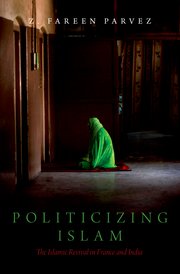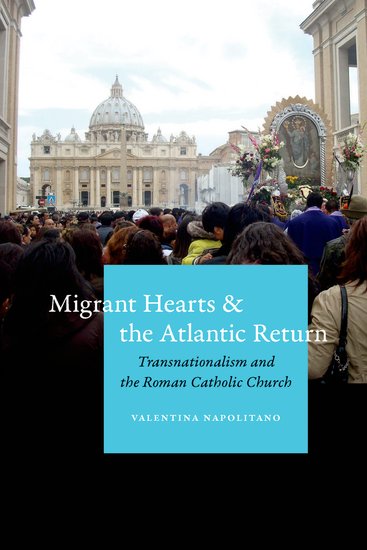There is an important ambiguity that attends the philosophical use of the term “end.” On the one hand, it can mean the termination of something (terminus). On the other hand, it can also mean the aim, goal, orientation, or purpose of something (telos). Whereas the terminus names the point of cessation for something, the telos, to some degree, names its projected essence. With this conceptual background in mind, when I received the invitation to review the new edited volume by Jason S. Sexton and Paul Weston entitled The End of Theology, I fully expected that it would play on this ambiguity occurring in the term “end.” Indeed, the subtitle seems to anticipate this very dynamism: “Shaping Theology for the Sake of Mission.” Surely, I thought, the point of the text would be to show that theology as currently practiced needs to come to some sort of “end” (terminus) in order to return to its appropriate missional “end” (telos). However, I was surprised to discover throughout the volume that really the only notion of “end” in play was in the sense of telos. This book is important in a lot of ways, but it is most important for highlighting what is needed in order for the book to be even better. When we confront the “ends” of theology, we should run up against the “ends” of ourselves.
Essays
The Immanent Frame publishes essays reflecting on current events, debates in the field, and other public matters relevant to scholarship in secularism and religion.
The Immanent Frame typically publishes essays by invitation only. To see our open calls for content, click here.
To read essays from our archive that are written by scholars introducing or reviewing a recently published book, click here and here.
From Christ to Confucius
 by
Udi Greenberg
by
Udi Greenberg
In his exciting and beautifully written book, From Christ to Confucius: German Missionaries, Chinese Christians, and the Globalization of Christianity, 1860-1950, Wu charts a fundamental shift in European missionaries’ conceptions of non-Europeans, from child-like barbarians in need of discipline to representatives of venerated civilizations worthy of respect. He meticulously reconstructs a century of missionary conferences, activities, and publications—both Catholic and Protestant—to demonstrate that German missionaries stood at the forefront of this transformation. Like almost all Europeans, Germans of the late nineteenth century were steeped in the call for a “civilizing mission,” and took for granted that their duty was to instill both the gospel and European social norms (especially monogamy) in “heathens” across the globe. However, the shock of World War I and Germany’s humiliating defeat induced German missionaries to develop a new understanding of their place in the world.
Politicizing Islam: An introduction
 by
Z. Fareen Parvez
by
Z. Fareen Parvez
Politicizing Islam is a comparative ethnography that analyzes the religious and political dynamics of the Islamic revival in France and India, home to the largest Muslim minorities in Western Europe and Asia. These two secular democracies make for a productive comparison on the topic of Islam and politics, despite their obvious differences. In both places, Muslims have long been racialized and suffer disproportionate rates of poverty and unemployment. Islamic revival and the reactions to it in the last two decades have struck at the core of both nations’ secular doctrines. The arguments presented in the book draw on two years of participant observation research in Lyon and the Indian city of Hyderabad, two cities with significant numbers of Muslims and forms of Islamic revival that the state has targeted in various ways. Specifically, I show how the politics of Islamic movements differ across class, a crucial factor that existing literature has largely overlooked.
Writing religion for the IPSP
 by
The Editors
by
The Editors
Can we hope for a better society? That is the animating question behind an ambitious project, the International Panel on Social Progress (IPSP). It exists to “harness the competence of hundreds of experts about social issues” and to “deliver a report addressed to all social actors, movements, organizations, politicians, and decision-makers, in order to provide them with the best expertise on questions that bear on social change.” Also modeled on the IPCC, drafts of the chapter reports are available for public comment. These are the collected responses to Chapter 16- Religions and Social Progress: Critical Assessments and Creative Partnerships, gathered from readers of The Immanent Frame. To read the original call for comments, written by coordinating lead authors Nancy Ammerman and Grace Davie, click here.
Catholic Humanitas: Notes on Critical Catholic Studies
 by
Valentina Napolitano
by
Valentina Napolitano
Contemporary engagement with embodied practices of Latin American transnational migrancy, as well as the long durée of the return of Catholic religious materialities, ideas, and fantasies from the Americas to Rome, shows the reignition of an old conflict within the Catholic Church and a lasting paradox within a Catholic Humanitas. This is the paradox growing from the Catholic fantasy of “full” conversion of the Other/Indian, with her imagined docile, childlike, as well as barbaric qualities—a fantasy that positions the Other/Indian as at once within and without a Catholic Humanitas. This constitutive dimension of Catholic Humanitas infuses the tension between Sameness and Otherness that still permeates Western cosmologies and, for better and worse, political practices toward migration and hospitality in Europe . . . . Under a present condition—in which a part of the clergy in Rome foregrounds personhood based on a Roman civic heritage, rather than multiple ways of being Catholic—attacks to Catholic Humanitas are seen as an attack on everyday civitas (conceived as a Sameness in the singular). If Catholicism has been a self-evident, “cultural” root of secular Europe, it has just as clearly shaped a potent political aesthetic of exclusion.
Religion and the new populism
The push for stronger cultural identities and political borders in the new populism is inseparable from the general concern about Islam and immigration. Most of the new populists are promoting a one-sided…
The Shipwrecked Mind: On Political Reaction
by Michael C. BehrentThinkers like Joseph de Maistre and the attitudes they embody are the subject of Mark Lilla’s new book, The Shipwrecked Mind, an important and timely study of political reaction. The fantasy of returning to a bygone era is, Lilla argues, the crux of reactionary thought: “Where others see the river of time flowing as it always has,” he writes, “the reactionary sees the debris of paradise drifting past his eyes.” Whether the goal be monarchical restoration, a new caliphate, or to “make America great again,” the reactionary mind is, more than anything, haunted by nostalgia—the longing for those “fresh Eden[s]” that arise during periods of disorienting social upheaval. Yet to indulge such fantasies, Lilla believes, is to succumb to “magical thinking.” In every reactionary, he thinks, there lies a bit of Don Quixote, pining for the Golden Age—and making a fool of himself in the process. Most of the volume’s essays first appeared in The New York Review of Books and were composed without political reaction as their explicit theme. They are written with enviable clarity. Lilla has an uncanny knack for distilling complex ideas to their intuitive essence in lucid, jargon-free prose. Yet while these essays are illuminating to a fault, one wonders if it is always on the reactionary mind that they shed their light.
Beheading the Saint: An introduction
by Geneviève ZubrzyckiBeheading the Saint is about the shifting relationship between nationalism, religion, and secularism in a society which was, until the late 1960s, exemplary of what Charles Taylor calls the “neo-Durkheimian” link between national identity and religion, wherein “the sense of belonging to the group and confession are fused and the moral issues of the group’s history tend to be coded in religious categories” (2007, 458). I examine how the relationship between French Canadianness and Catholicism was configured in the nineteenth century, how it was reconfigured as Québécois and secular in the 1960s, and why and how that transition informs recent debates over secularism in Québec. The secularization of national identity during the Quiet Revolution remains the key to understanding the role and place of religion in the public sphere in today’s Québec.
Radical Secularization?
by Ulrike SpohnIn a discussion in the German press about the displacement of continental philosophy in Europe by the increasingly triumphant advance of analytical philosophy, Charles Taylor warned against ideals of purity in philosophy. He argued that questions concerning the philosophy of religion, political philosophy, and philosophical anthropology cannot adequately be addressed within the sterile categories of a self-sufficient philosophy. Rather, they require hermeneutic engagement with the social sciences and the humanities. The book Radical Secularization? An Inquiry into the Religious Roots of Secular Culture, edited by Stijn Latré, Walter Van Herck and Guido Vanheeswijck, shows such courage towards “impurity,” making it a particularly stimulating new contribution to the current debates about secularization and the role of religion in contemporary secular societies. Its focus is on the genealogy of secularization, and the title “Radical Secularization” refers to both the roots, or radices, of secularization and the end of secularization—where “end” could either mean that the process of secularization has been completed or, conversely, that it has been stopped by the “return of religion.”
Obama, the Democratic Party, and Islamophobia
While reasonable people might disagree with him for his compromises on questions involving universal health care and his approach to the Great Recession—especially given the fact that he had to deal with…













